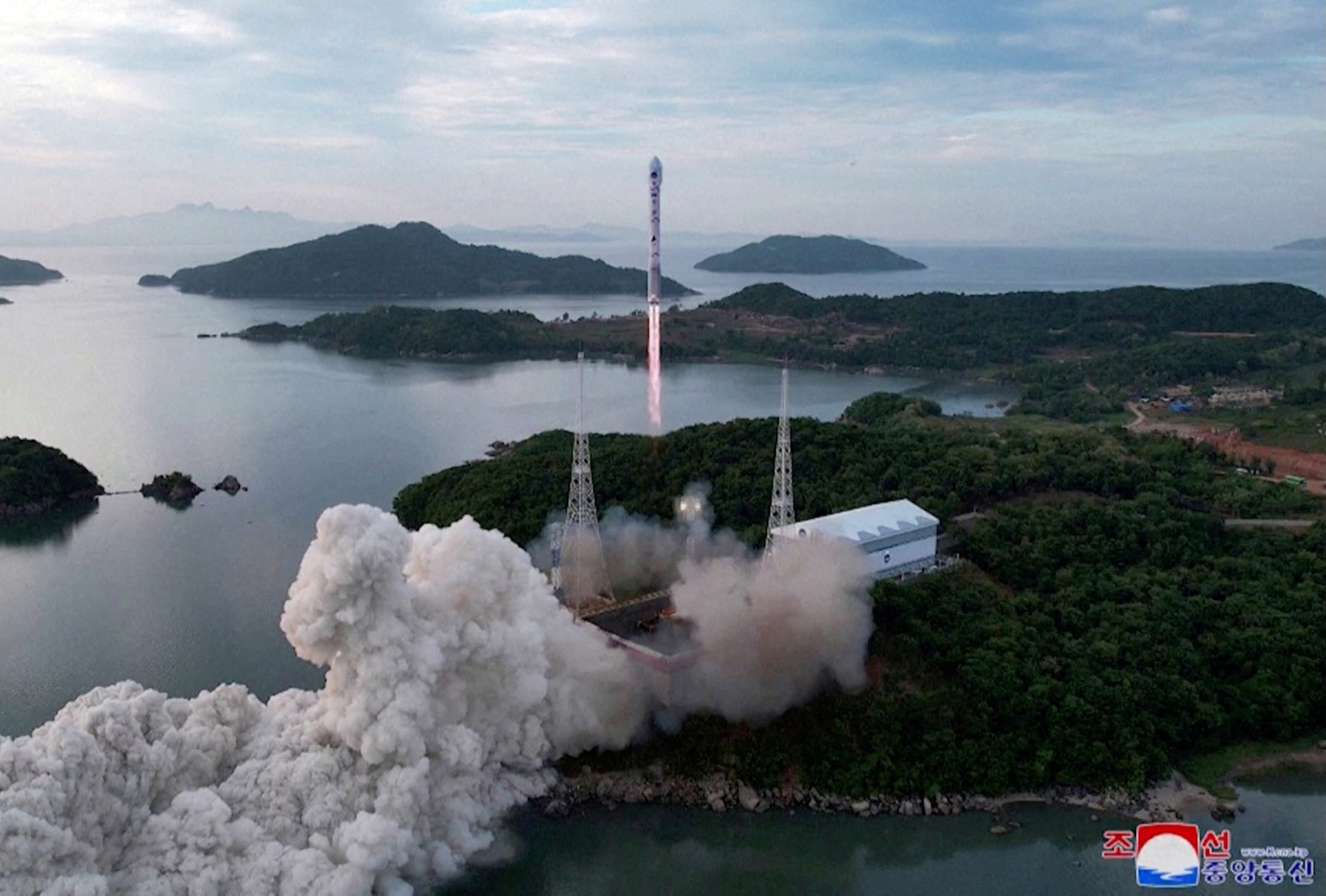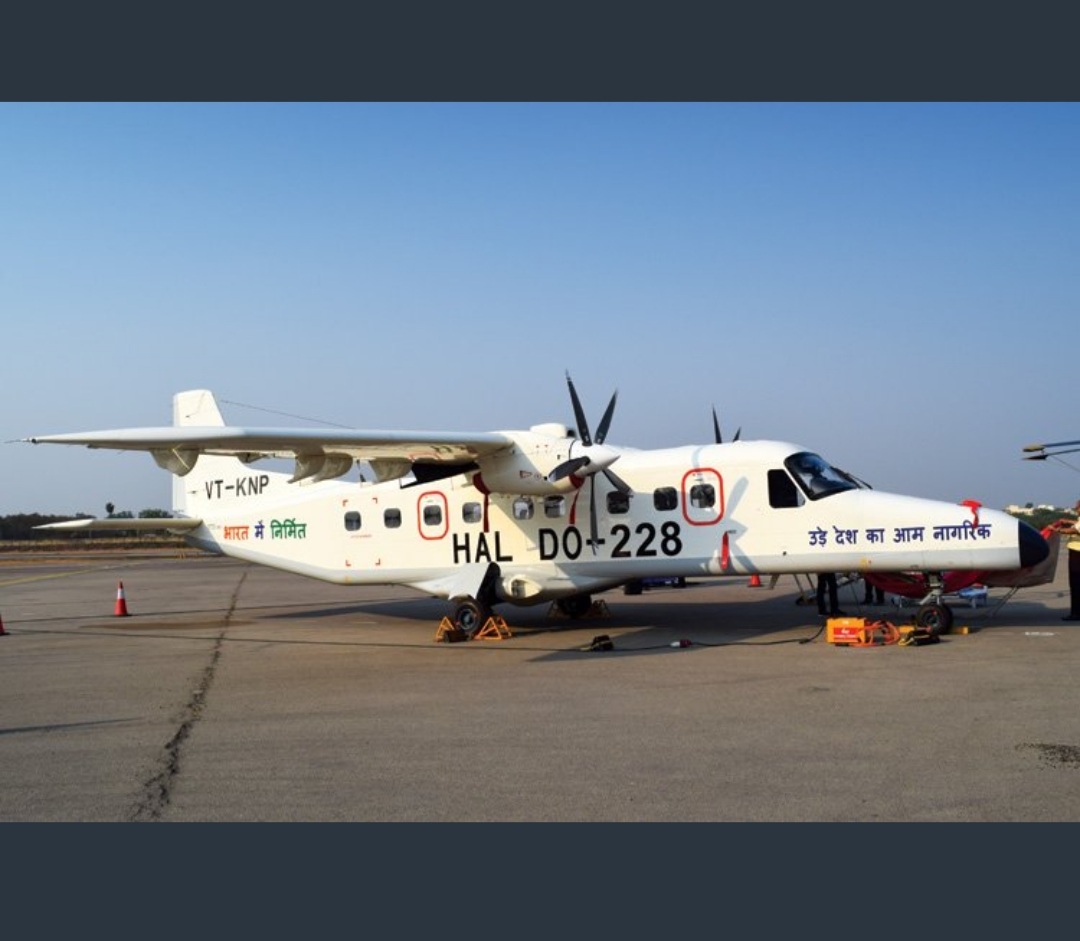In a provocative move, North Korea asserts the successful launch of its first spy satellite, triggering international concern and condemnation, with South Korea taking immediate steps to suspend parts of a 2018 military agreement.
Seoul, NFAPost: North Korea has announced the successful placement of its first spy satellite in orbit, challenging the international community’s norms and defying condemnation from the United States and its allies. The launch, reportedly the third attempt this year, has sparked immediate responses from neighbouring countries, raising concerns about the security situation in the region.
South Korea and Japan, the first to report the launch, expressed skepticism and stated they were unable to immediately verify the satellite’s presence in orbit. The Pentagon spokesperson, Sabrina Singh, stated that the U.S. military is still assessing the success of the launch. Meanwhile, South Korea responded to North Korea’s announcement by initiating steps to suspend parts of a 2018 inter-Korean agreement aimed at reducing military tensions.
According to South Korea’s Yonhap news agency, the suspension measures would involve restoring reconnaissance and surveillance operations around the military demarcation line between the two countries. This move signifies the immediate regional consequences of North Korea’s provocative actions.
North Korea, through its state news agency KCNA, claimed the successful launch of the Malligyong-1 satellite on a Chollima-1 rocket from the Sohae satellite launch facility. While North Korea asserts the satellite entered orbit, international sources remain cautious about verifying these claims. The U.S. National Security Council spokesperson, Adrienne Watson, condemned the launch as a “brazen violation of multiple U.N. Security Council resolutions,” warning of increased tensions and potential destabilization in the region.
U.S. State Department spokesperson Matthew Miller highlighted that the launch employed ballistic missile technology, a violation of U.N. resolutions prohibiting North Korea from such activities. The international community awaits the outcome of the U.S. military’s assessment and the subsequent response from global leaders.
Regional Responses and Escalating Tensions
South Korea, responding to North Korea’s actions, announced measures to suspend parts of the inter-Korean agreement from 2018. The decision includes the restoration of reconnaissance and surveillance operations around the military demarcation line, signalling a swift and direct consequence for North Korea’s actions. The move reflects the delicate balance of diplomatic and security considerations in the region.
In addition to the immediate regional response, South Korean officials have suggested the possibility of Russian assistance to North Korea in its satellite endeavours. This claim adds a layer of complexity to the geopolitical landscape, with implications for regional security dynamics.
International Condemnation and Security Concerns
The launch has garnered international condemnation, with the U.S. National Security Council labelling it a violation of U.N. resolutions. The defiance from North Korea poses challenges for diplomatic efforts to denuclearize the Korean Peninsula and maintain stability in the region.
Japanese Prime Minister Fumio Kishida strongly condemned North Korea’s actions, emphasizing the violation of U.N. Security Council resolutions and the threat to Japanese citizens’ safety. The Japanese government had earlier issued emergency alerts to residents in Okinawa, directing them to seek shelter, reflecting the heightened concerns about the security implications of North Korea’s missile launches.
Technical Assessment and Future Implications
While North Korea claims the successful launch of its first spy satellite, the international community awaits the technical assessment by the U.S. military. The ambiguity surrounding the satellite’s actual presence in orbit adds a layer of uncertainty to the situation. This comes as a part of a pattern of North Korean provocations, including failed attempts earlier in the year.
The launch follows a summit between North Korean leader Kim Jong Un and Russian President Vladimir Putin in September, where the latter pledged assistance to Pyongyang in satellite development. This raises questions about the extent of international cooperation in North Korea’s space endeavours and potential repercussions for regional stability.
Security Preparedness and Future Scenarios
South Korea’s military believed that the rocket carried a reconnaissance satellite and was launched toward the south. Emergency alerts in Japan underscored the immediate security concerns, prompting residents to take cover. The response from regional defence systems, including Aegis destroyers and PAC-3 air defence missiles, highlights the preparedness for any unexpected situation.
As the situation unfolds, the international community faces the challenge of responding to North Korea’s provocations while avoiding further escalation. The complexities of diplomatic efforts, security considerations, and the potential involvement of external actors, such as Russia, add layers of uncertainty to the regional landscape.
The Path Forward
The immediate aftermath of North Korea’s claimed satellite launch underscores the need for a coordinated and measured international response. The U.S. assessment of the technical aspects of the launch will play a crucial role in determining the next steps. The delicate balance between diplomatic efforts, regional security concerns, and the evolving geopolitical dynamics in the Korean Peninsula requires careful navigation by global leaders.
The future trajectory of North Korea’s space endeavours and its impact on regional stability remains uncertain. The international community, particularly the United States, South Korea, and Japan, will closely monitor developments and strategize their responses based on the evolving situation. As the region grapples with the consequences of this provocative move, diplomatic channels and regional cooperation will be crucial in managing the complexities of the Korean Peninsula.





